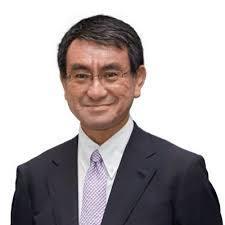Posted on : Nov.5,2018 16:43 KST
 |
|
Japanese Foreign Minister Taro Kono
|
Taro Kono claims 1965 treaty puts all responsibility for reparations on South Korea
 |
|
Japanese Foreign Minister Taro Kono
|
Japanese Foreign Minister Taro Kono responded to a recent South Korean Supreme Court ruling ordering a Japanese business to compensation victims of forced labor conscription by saying the South Korean government should compensate the victims itself.
“The South Korean government assumed responsibility [with the 1965 Claims Settlement and Economic Cooperation Agreement between South Korea and Japan] and agreed to provide compensation and damages [to victims of forced conscription],” Kono was quoted by NHK as saying in a Nov. 3 speech in Kanagawa Prefecture.
“Rather than compensation each person individually, the Japanese government paid a corresponding amount through its economic cooperation fund,” Kono explained about the agreement’s signing.
“South Korea had an annual budget of around US$300 million at the time, and Japan provided it with a lump sum of US$500 million,” he said.
Kono went on to describe this as the “most basic of the promises made between Japan and South Korea to date.”
“The [South Korean Supreme Court] ruling is in complete violation of this decision. Japan has paid all the necessary money to South Korea, and now the South Korean government must assume responsibility for compensation,” he said.
But even within Japan, many criticize the Japanese government’s claim that the issue was “completely and finally resolved” with the 1965 agreement.
In a Nov. 1 press conference, Japanese Communist Party Chairman Kazuo Shii noted that even the Japanese government has not always rejected individual claims. In particular, he cited a response given before the Diet of Japan in 1991 by Shunji Yanai, then director of the Foreign Ministry’s treaty bureau. When asked what the Japanese government meant with its position that the right to claim damages was “completely and finally resolved” with the agreement, Yanai replied, “It means both sides are waiving the right of diplomatic protection, not that individual rights to claims per se are extinguished.”
The response came after the Foreign Ministry had already replied before the Diet the same time on the individual claim rights of Japanese soldiers who had worked in Siberia as prisoners of the Soviet army during the Second World War.
“The abandonment of claim rights in the Japanese-Soviet joint declaration refers to waiving the right of diplomatic protection and does not mean that individual Japanese citizens forfeit the right to make claims against the Soviet Union and any of its citizens,” the ministry concluded at the time.
The responses suggest the ministry felt unable to give conflicting responses at the time on what amounted to similar issues.
Tokyo’s position shifted during the 2000s after it concluded that this interpretation could prove detrimental in the trials of South Korean victims. In the 2001 appeal of a case filed by South Korea family members demanding damages in connection with the explosion of the Ukishima Maru, the Japanese government argued that the right of South Koreans to claim damage had “extinguished with the direct application of the Japan-South Korea agreement.”
By Cho Ki-weon, Tokyo correspondent
Please direct comments or questions to [english@hani.co.kr]








